Aphorisms Franz KafkaThe aphorism eludes definition: it can appear to be a random jotting or a more polished observation. Whether arbitrary fragment or crystalline shard, an aphorism captures the inception of a thought. Franz Kafka composed aphorisms during two periods in his life. A series of 109 was written between September 1917 and April 1918, in Zürau, West Bohemia, while Kafka was on a visit to his sister Ottla, hoping for a brief respite following the diagnosis of the tuberculosis virus that would eventually claim his life. They were originally published in 1931, seven years after his death by his friend and literary executor Max Brod, under the title Betrachtungen über Sünde, Hoffnung, Leid, und den wahren Wag (Reflections on Sin, Hope, Suffering, and the True Way). The second sequence of aphorisms, numbering 41, originally appeared as entries in Kafka’s diary from January 6 to February 29, 1920. They, too, were published posthumously, under the title “Er”: Aufzeichnungen aus dem Jahr 1920 (“He”: Reflections from the Year 1920).
Kafka’s aphorisms are fascinating glimpses into the lure and the enigma of the form itself.The Castle Franz KafkaIntroduction by Irving Howe; Translation by Willa and Edwin MuirCollected Stories Franz KafkaThe Trial (Everyman's Library (Cloth)) FRANZ KAFKAKafka: The Decisive Years Reiner StachThis is the acclaimed central volume of the definitive biography of Franz Kafka. Reiner Stach spent more than a decade working with over four thousand pages of journals, letters, and literary fragments, many never before available, to re-create the atmosphere in which Kafka lived and worked from 1910 to 1915, the most important and best-documented years of his life. This period, which would prove crucial to Kafka's writing and set the course for the rest of his life, saw him working with astonishing intensity on his most seminal writings—The Trial, The Metamorphosis, The Man Who Disappeared (Amerika), and The Judgment. These are also the years of Kafka's fascination with Zionism; of his tumultuous engagement to Felice Bauer; and of the outbreak of World War I.
Kafka: The Decisive Years is at once an extraordinary portrait of the writer and a startlingly original contribution to the art of literary biography.Kafka: The Early Years Reiner StachHow did Kafka become Kafka? This eagerly anticipated third and final volume of Reiner Stach's definitive biography of the writer answers that question with more facts and insight than ever before, describing the complex personal, political, and cultural circumstances that shaped the young Franz Kafka (1883–1924). It tells the story of the years from his birth in Prague to the beginning of his professional and literary career in 1910, taking the reader up to just before the breakthrough that resulted in his first masterpieces, including "The Metamorphosis." Brimming with vivid and often startling details, Stach’s narrative invites readers deep inside this neglected period of Kafka’s life. The book’s richly atmospheric portrait of his German Jewish merchant family and his education, psychological development, and sexual maturation draws on numerous sources, some still unpublished, including family letters, schoolmates’ memoirs, and early diaries of his close friend Max Brod.
The biography also provides a colorful panorama of Kafka’s wider world, especially the convoluted politics and culture of Prague. Before World War I, Kafka lived in a society at the threshold of modernity but torn by conflict, and Stach provides poignant details of how the adolescent Kafka witnessed violent outbreaks of anti-Semitism and nationalism. The reader also learns how he developed a passionate interest in new technologies, particularly movies and airplanes, and why another interest―his predilection for the back-to-nature movement―stemmed from his “nervous” surroundings rather than personal eccentricity.
The crowning volume to a masterly biography, this is an unmatched account of how a boy who grew up in an old Central European monarchy became a writer who helped create modern literature.Kafka: The Years of Insight Reiner StachThis volume of Reiner Stach's acclaimed and definitive biography of Franz Kafka tells the story of the final years of the writer's life, from 1916 to 1924—a period during which the world Kafka had known came to an end. Stach's riveting narrative, which reflects the latest findings about Kafka's life and works, draws readers in with nearly cinematic precision, zooming in for extreme close-ups of Kafka's personal life, then pulling back for panoramic shots of a wider world blighted by World War I, disease, and inflation.
In these years, Kafka was spared military service at the front, yet his work as a civil servant brought him into chilling proximity with its grim realities. He was witness to unspeakable misery, lost the financial security he had been counting on to lead the life of a writer, and remained captive for years in his hometown of Prague. The outbreak of tuberculosis and the collapse of the Austro-Hungarian Empire constituted a double shock for Kafka, and made him agonizingly aware of his increasing rootlessness. He began to pose broader existential questions, and his writing grew terser and more reflective, from the parable-like Country Doctor stories and A Hunger Artist to The Castle.
A door seemed to open in the form of a passionate relationship with the Czech journalist Milena Jesenská. But the romance was unfulfilled and Kafka, an incurably ill German Jew with a Czech passport, continued to suffer. However, his predicament only sharpened his perceptiveness, and the final period of his life became the years of insight. |
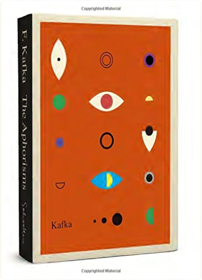
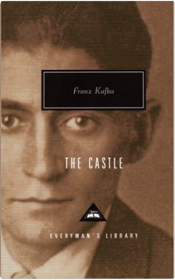
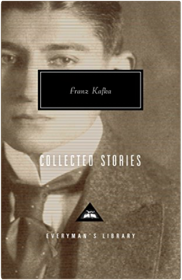
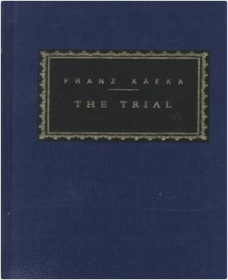
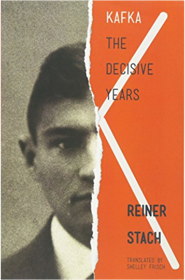
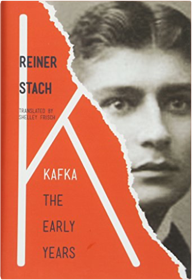
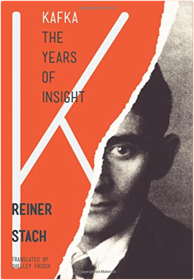


 Made with Delicious Library
Made with Delicious Library